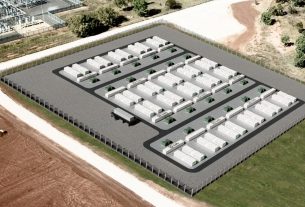The Netherlands/Belgium – The Netherlands and Belgium are collaborating in the transportation and storage of carbon dioxide (CO2) as part of their efforts to promote sustainability in the industry. The decision was made during the state visit of King Willem-Alexander and Queen Maxima to Belgium.
The primary objective of this cooperation is to facilitate the cross-border transport of CO2 between key ports and industrial hubs in both countries, such as Antwerp, Ghent, Rotterdam, and Zeeland. Additionally, the Netherlands and Belgium are committed to storing Belgian and Dutch CO2 in depleted gas and oil fields beneath the North Sea in the future. To solidify this agreement, Minister Micky Adriaansens (Economic Affairs and Climate) and Deputy Prime Minister Vincent Van Quickenborne (Belgium), along with Ministers Zuhal Demir (Flanders) and Philippe Henry (Wallonia), signed the agreement.
Cleaner practices
Minister Micky Adriaansens emphasizes that the transport and storage of CO2 are not isolated goals but rather means to achieve a more sustainable industry and reduce CO2 emissions. This endeavor is crucial for meeting climate objectives and strengthening the economy. Industrial clusters in Antwerp and Rotterdam, renowned for their economic significance, can maintain their global leadership by transitioning to cleaner industry practices. The joint efforts of the Netherlands and Belgium in advancing clean technology will attract companies seeking to transition from carbon-intensive to environmentally friendly operations.
CO2 transport and storage
This collaboration sets the stage for the growth of a cross-border market for CO2 transport and storage. By combining their resources and expertise, the Netherlands and Belgium can create an environment that remains attractive to businesses and fosters the shift from “gray” industries to “green” ones.
The transportation and storage of CO2 offer several benefits. Firstly, it enables the reduction of CO2 emissions from industries, which is crucial for combating climate change and achieving sustainability targets. Secondly, it provides economic opportunities for both countries, particularly in industrial clusters, by attracting investment and supporting the growth of clean industries. Lastly, it showcases the commitment of the Netherlands and Belgium to international climate goals and positions them as leaders in the transition to a low-carbon future.
However, challenges may arise during the implementation of cross-border CO2 transport and storage. Some potential hurdles include regulatory and legal complexities, financial considerations, and ensuring the safe and efficient transport of CO2. Additionally, public acceptance and support for these initiatives will play a crucial role in their success.
The collaboration between the Netherlands and Belgium in the field of CO2 transport and storage demonstrates the commitment of both countries to sustainable industrial development. By joining forces, they can leverage their strengths and resources to accelerate the transition towards a greener and more sustainable future.




